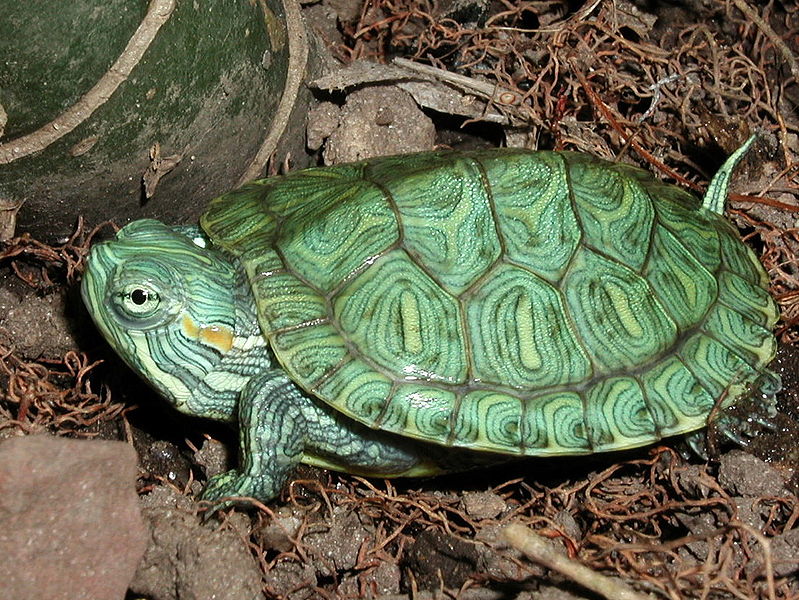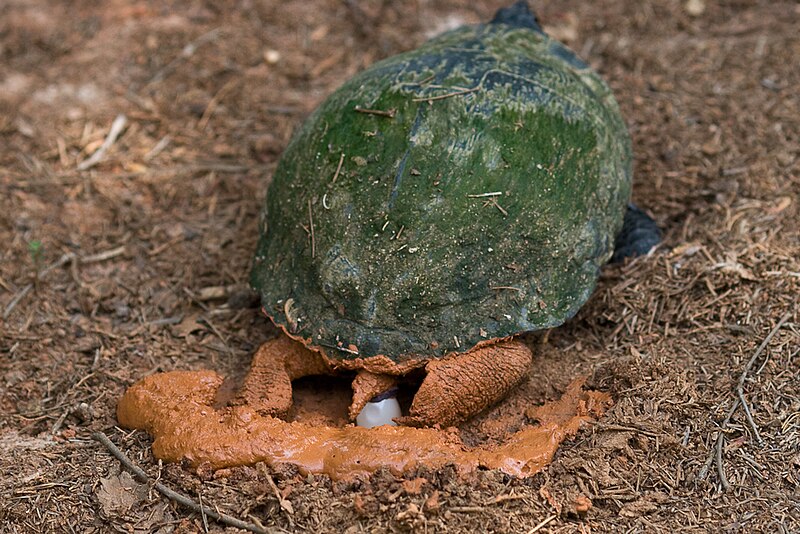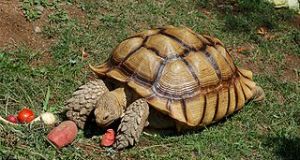Although Slider hatchlings (Trachemys scripta elegans) have been banned from the US pet trade by the Food and Drug Administration since 1975, the tiny green turtles are still regularly offered for sale in certain areas, creating confusion for aspiring turtle owners.
History of the Law
 Under the law, turtles less than 4 inches in length may not be sold, regardless of the species. The sale of larger turtles is regulated by state law (the 4 inch rule is a bit confusing, more on that in a future article).
Under the law, turtles less than 4 inches in length may not be sold, regardless of the species. The sale of larger turtles is regulated by state law (the 4 inch rule is a bit confusing, more on that in a future article).
Traditionally, turtles were considered prime carriers of Salmonella bacteria… the law was enacted in response to over ¼ million annual cases of Salmonellosis among turtle owners in the early 70’s. Salmonellosis can cause meningitis and miscarriage, and may be fatal to children, the elderly and immune-compromised individuals.
“Safe Sliders” to Force Policy Change?
According to commercial turtle farmers, however, the situation has changed in the 30+ years since the ban went into effect. Farmers claim they are now able to produce Salmonella-free hatchlings, and that effective pre-treatment before sale could be used as additional insurance.
In 2007 Louisiana Senator Mary Landrieu introduced legislation seeking to legalize the sale of Salmonella-free Red Eared Slider hatchlings (Louisiana is home to an estimated 80 turtle farms). Last month (April, 2010), the Louisiana District Court ruled that the FDA has not adequately addressed the issue, and directed that further consideration be given to legalizing the sale of small turtles.
So, the ban remains in effect for the time being, but the situation may change in the future.
What to Do?
You can contact the FDA (888-463-0332) regarding violations of the turtle sale rule. If you own a hatchling, ask your local humane society for advice, but do not release it. The Center for Disease Control provides safety guidelines for turtle owners.
It is important to keep in mind that the irresistible little turtles grow rapidly into large, active animals. Proper care entails full-spectrum lighting, a heated, filtered aquarium (of 75-100 gallon capacity for adults) and a well-balanced diet. Do not purchase sick turtles in hope of curing them, as this is a difficult prospect even for a veterinarian. Rather, report the matter to your local humane society.
Learning More
 Red Eared Sliders turn up in the unlikeliest of places…I’ve found them in sites ranging from the Bronx River to temple ponds in Japan; please see Typical and Atypical Slider Habitats for more info and photos.
Red Eared Sliders turn up in the unlikeliest of places…I’ve found them in sites ranging from the Bronx River to temple ponds in Japan; please see Typical and Atypical Slider Habitats for more info and photos.
Please check out this recent Mississippi Newspaper Article for a turtle farmer’s view.
Red eared Slider Hatchling image referenced from wikipedia and originally posted by Jf268
Red eared Slider Laying Egg image referenced from wikipedia and originally posted by Nephets
 That Reptile Blog – Reptile, Amphibian and Exotic Pet Care and Information
That Reptile Blog – Reptile, Amphibian and Exotic Pet Care and Information


